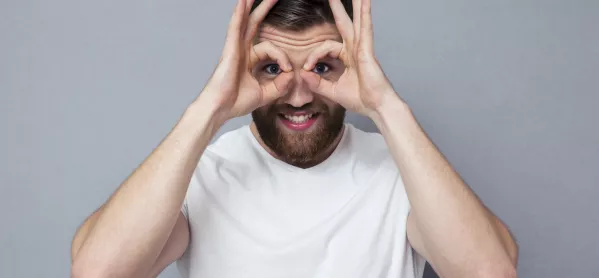“You should observe Joe - he’s a really good teacher.”
Dutifully, I went. After being welcomed by a slightly harassed looking ‘Joe’ (who had clearly forgotten I was coming, but kindly tried to pretend otherwise), I perched awkwardly on a chair at the back of the classroom.
Well, this was a lesson for myself and the children in the class. What did I learn? For starters, the same students who barely grunted in my lessons were giving articulate, eloquent responses, and even asking thought-provoking questions.
I also learned that the same students who in my lessons responded to my attempts at behaviour management with withering stares were able to be compliant and listen without chatting to friends.
And I also acquired the unexpected knowledge that the same students who struggled to dredge up the most basic of facts in my lessons were recalling, retrieving and repurposing complex concepts to compare to their current situation.
I left the lesson inspired to wreak the same transformative effect with my own classes. But - disaster - to my dismay, it didn’t happen. I’d done what my mentor had asked me to - I had observed a “really good teacher” - so what went wrong?
Putting learning into action
All teachers at every point of their career will benefit from watching experienced teachers, and it is undeniably thrilling to see an expert in action.
But, just as watching a Formula 1 racing driver complete a course in record time doesn’t improve my speed driving in my clapped out Suzuki Swift, my observation of ‘Joe’ didn’t magically transform my lack of experience.
So, how do we make this opportunity as useful as possible?
1. Prepare in advance
Before you go and summarily observe a teacher, you must decide what it is you are wanting to observe. This comes before you choose the teacher or the lesson.
As a starting point, what are the key areas you’re looking to develop? Or is there a particular aspect of teaching you’re really interested in? From this, approach your mentor or line manager and find out who in the school does these things really well. Once you know the answers to these questions, you can find the right person to observe.
2. Communicate with them
Now that you know who you are seeing, communicate with them. Let them know they’ve been recommended to you as an expert at X or Y, and that you are working on this in your own practice.
The best approach is to ask them if they have a lesson coming up where they have already planned to utilise this technique. This matters because seeing it embedded in a sequence of learning will enhance your understanding of it in a way that a well-meaning, but artificially inserted, demonstration of skill would not.
Ask for any resources relating to what you’re looking for in advance, too - such as curriculum plans, PowerPoints or student resources, so that you can see exactly how it is intended to be used.
Finally, you should make sure that the colleague you are observing has some time as soon as possible after the lesson to discuss the implementation and impact in practice - this can only support you in your next steps.
3. Experiment yourself
Now that you have a greater comprehension of this aspect in practice, here comes the terrifying bit - try it for yourself!
It is essential you experiment with what you’ve seen and try out ways to adapt what you have seen for your classes. Even if you feel hesitant or doubt your own ability, do have the courage to trial new methods. Just as we tell our students, yes, we know that it may not work the first time - but success isn’t achieved by giving up.
And do be kind to yourself if it does not. If it helps, explain to your class what you are doing and why - modelling a pathway to mastery as you do.
4. Follow up with self-reflection
As with everything new that is tried out, it requires a thorough evaluation before you can draw any conclusions about its success. So be sure to reflect on your experiments - what has and hasn’t worked? Why might that be?
If you can, go back to the original teacher and talk it through with them. Ideally, you would find time to watch more lessons of theirs and experiment further. And in an ideal world, you would ask them to come and observe you, and ask for their advice. Teachers are the most valuable resource in the school, so make the most of them.






